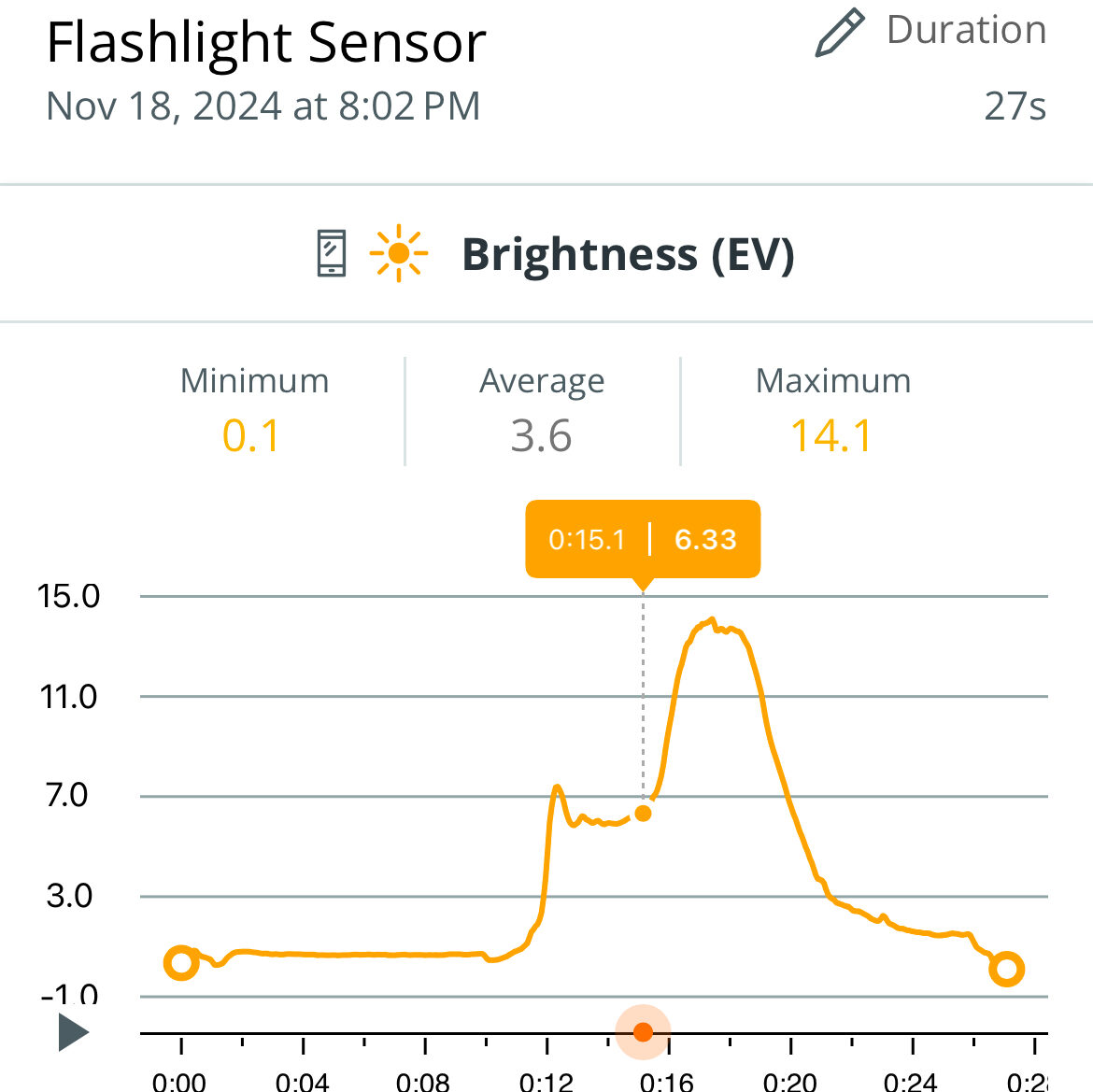Screenshot of Flashlight Sensor from Science Journal

Summary of New B.C. Ministry of Education Guidelines on Device Use in K-12 Schools
The B.C. Ministry of Education has introduced new guidelines for device use in K-12 schools that emphasize restricting cellphone use. While specific rules vary by district, a common approach has emerged. In most elementary schools, cellphone use is banned throughout the entire school day, from start to finish. For secondary schools, the guidelines are more lenient, typically limiting device usage to non-instructional times such as breaks, before school, and after school hours.
Smartphones and Tablets in Educational Settings: Helpful or Not?
Smartphones and tablets have a complex role in educational settings, particularly for the grade level I intend to teach. While these devices can offer access to interactive learning apps, immediate research opportunities, and digital collaboration, they often pose challenges as well. In the classroom, smartphones frequently become a distraction, diverting students from lessons, reducing focus, and potentially hampering meaningful peer-to-peer interactions.
Research backs up these concerns. For example, a recent article on new B.C. district policies to restrict cellphone use during the 2024-25 school year highlights findings that removing cellphones from the classroom can reduce students’ temptation to check their devices, fostering better engagement with the learning material and peers.
A video from a B.C. Premier also reinforces this sentiment, indicating that while the cellphone ban will stay in place, its implementation varies across school districts. Watch here.